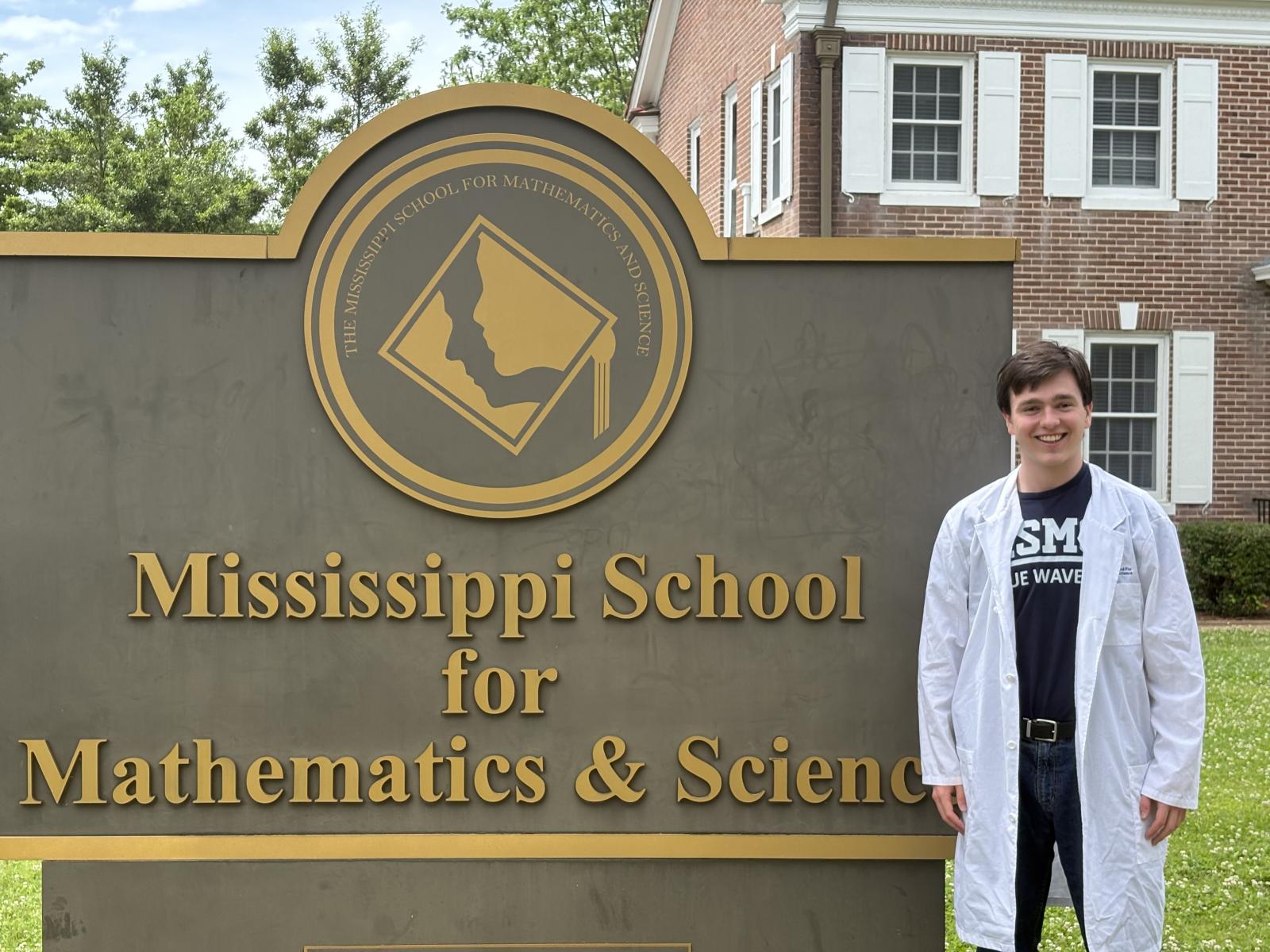MSMS student partners with MSU for new superfood research
Contact: Anslee Boyd
STARKVILLE, Miss.—Greenwood native Anderson Chaney, an 11th grader attending the Mississippi School for Mathematics and Science, has spent the year conducting groundbreaking research at Mississippi State.
The high school intern has helped researchers in the Mississippi Agricultural and Forestry Experiment Station’s Environmental Plant Physiology Lab study Centella asiatica, a medicinal herb known in India for its cognitive and health benefits. Raja Reddy, a MAFES scientist and research professor in the Department of Plant and Soil Sciences, has served as the rising high school student’s mentor.
“Centella is widely used in the nutraceutical and pharmaceutical industries,” Reddy said. “It contains active compounds like asiaticoside and madecassoside, known to enhance cognitive function, soothe the nervous system, enhance wound healing and improve skin and hair health.”
With Reddy’s help, Chaney helped uncover new possibilities for this potential specialty herb crop in Mississippi. He was selected for MSMS’s competitive research mentorship program, which pairs exceptional high school students with university faculty. Through this opportunity, he joined the MAFES lab and has been collaborating with postdoctoral researchers to study the plant’s health benefits and market viability.
Chaney’s journey into plant-based research has involved weekly visits to MSU’s campus, where he spent approximately five hours a week in the greenhouse and laboratory. He monitored chlorophyll content using leaf clip sensors, measured stem length and leaf area, and analyzed plant weight throughout the experimental period.

“I’ve been able to do a lot of fulfilling research,” he said. “Each week, I’ve gotten hands-on lab experience, from monitoring growth patterns to studying nutrient content.”
He found that Centella, grown under optimal conditions, produces steadily increasing biomass, making it a strong candidate as a specialty crop in Mississippi. The chlorophyll content in the plant’s leaves rose by 82% between weeks two and five, a sign of photosynthetic activity and plant health. Stem lengths increased consistently by three centimeters weekly, helping maximize light capture and biomass production. Individual leaf size remained constant after reaching maturity. However, the number of leaves per plant continued to grow, boosting the total marketable yield.
The findings suggest Centella holds considerable promise for the nutraceutical and pharmaceutical markets, and future studies will explore how environmental factors such as drought, salinity and temperature could further impact growth and production.
In April, Chaney shared his findings at the Alliance of Sustainable Farms Field Day in Greenwood, where he presented to more than 100 vegetable growers.
“Dr. Reddy gave me the opportunity to speak,” he said. “He’s been incredibly supportive, arranging not only that presentation but also getting me involved with seminars and other experiences on campus.”
Chaney credits his supportive family for his success.
"My parents, brother and sister mean the world to me,” he said. “And so does Dr. Reddy. He’s made me think seriously about future careers in research and development.”
Though he’s still undecided on a college major, Chaney said this project has opened his eyes to what is possible. MSMS’s student research program continues to offer students a unique opportunity to work with university experts on real-world, hands-on projects, sparking curiosity and career exploration across the state.
Reddy said the Centella project reflects a growing interest in specialty crops in Mississippi and shows how partnerships between high school talent and university research can explore big potential from small leaves.
Mississippi State University is taking care of what matters. Learn more at www.msstate.edu.